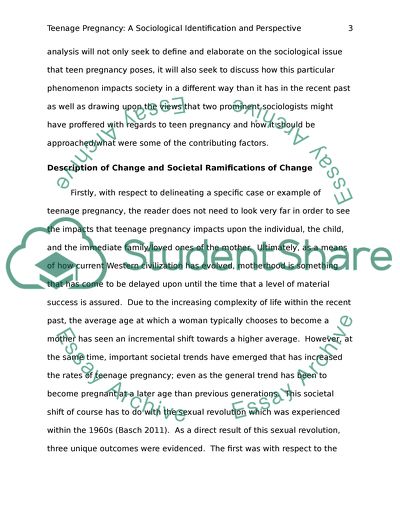Cite this document
(“Teenage Pregnancy: A Sociological Identification and Perspective Essay”, n.d.)
Retrieved from https://studentshare.org/sociology/1484162-teenage-pregnancy
Retrieved from https://studentshare.org/sociology/1484162-teenage-pregnancy
(Teenage Pregnancy: A Sociological Identification and Perspective Essay)
https://studentshare.org/sociology/1484162-teenage-pregnancy.
https://studentshare.org/sociology/1484162-teenage-pregnancy.
“Teenage Pregnancy: A Sociological Identification and Perspective Essay”, n.d. https://studentshare.org/sociology/1484162-teenage-pregnancy.


